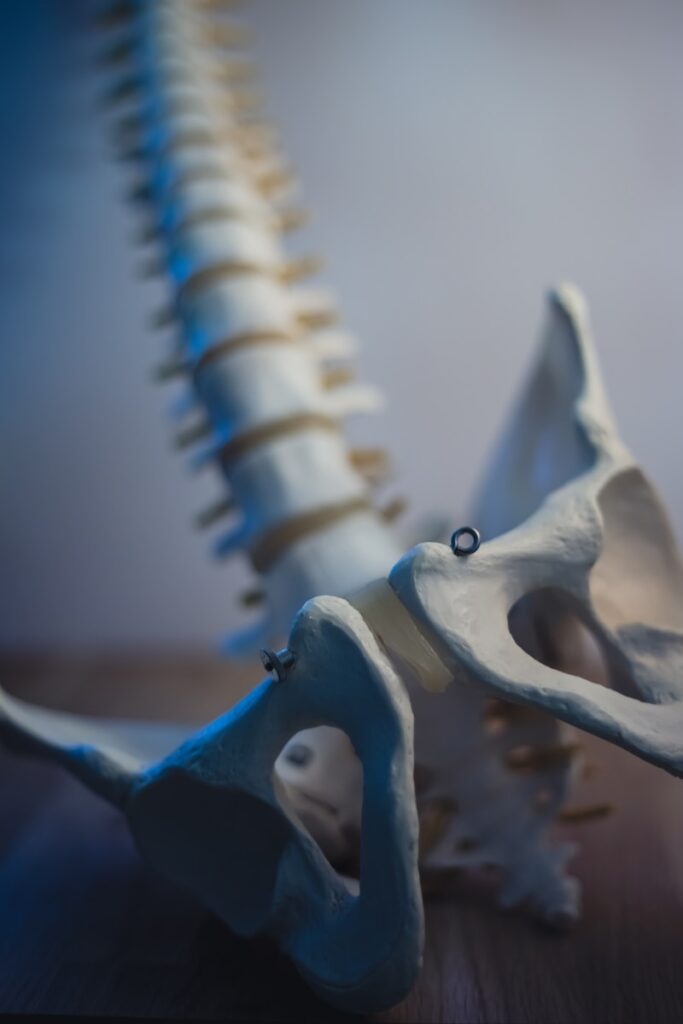
The Importance of Protein for Women: Nourishing Health and Wellness
Table of Contents
Protein is the powerhouse nutrient, and when it comes to protein for women, it is critical to pay attention to this macronutrient.
In the world of nutrition, protein is often hailed as the kingpin of macronutrients, and for good reason. It’s the building block for our bodies, and women, in particular, need to pay close attention to their protein intake to thrive.
I recently heard an integrative doctor say, “As women age, they need to eat protein like it’s their job.”
In this article, we’ll explore why women need protein and how to make sure you’re getting enough.

Understanding Protein
Let’s start with the basics. What exactly is protein? It’s one of the three macronutrients our bodies require, alongside carbohydrates and fats.
But protein is special because it’s responsible for a wide range of body functions, from repairing tissues to supporting immune health. So, it’s essential for everyone, especially women.
Protein and Women’s Health
A woman’s body utilizes protein in ways that are both similar to and distinct from men due to the unique physiological and hormonal differences between the two genders. While both men and women require protein for fundamental functions like muscle repair and growth, immune system support, and enzyme production, women often have different nutritional needs, especially during life stages such as pregnancy, breastfeeding, and menopause.
Protein plays a critical role in a woman’s reproductive health, assisting in the formation of hormones necessary for menstrual regulation, pregnancy maintenance, and breast milk production.

Additionally, women may need to pay extra attention to their bone health, as protein contributes to bone density, which is crucial for preventing osteoporosis, a condition that disproportionately affects women.
In summary, while the basic functions of protein utilization are shared between men and women, women’s specific life stages and health concerns may require a more nuanced approach to their protein intake.
Women have unique nutritional needs, and protein plays a pivotal role in meeting them. Women need protein to maintain and promote good health. In fact, studies show that women are more likely to suffer from protein deficiency, which can lead to a host of health issues.
The Benefits of Protein for Women
1. Weight Management and Metabolism:
Protein can help control your appetite, making it easier to manage your weight. Plus, it boosts your metabolism, helping you burn calories more efficiently.
Protein’s ability to improve satiety, or the feeling of fullness and satisfaction after a meal, has been extensively studied and is well-supported by scientific research. Several mechanisms contribute to how proteins achieve this effect.

Firstly, protein consumption triggers the release of hormones that signal fullness to the brain. The two key hormones involved are leptin and ghrelin.
Leptin, often referred to as the “satiety hormone,” increases after a protein-rich meal, sending signals to the brain that you are full.
Conversely, ghrelin, known as the “hunger hormone,” decreases, reducing your appetite.
Additionally, protein-rich foods generally take longer to digest than carbohydrates or fats. This slower digestion rate can lead to a prolonged feeling of fullness, helping to curb overeating and snacking between meals.
Furthermore, protein helps regulate blood sugar levels by slowing down the absorption of carbohydrates from the digestive tract. This prevents rapid spikes and crashes in blood sugar, which can lead to increased hunger and cravings.
Moreover, the body expends more energy, or calories, to metabolize protein compared to other macronutrients. This is known as the thermic effect of food (TEF). A higher TEF means that the body burns more calories during protein digestion, contributing to a feeling of fullness.
Lastly, protein-rich foods often have a more satisfying and savory taste compared to foods low in protein. This sensory satisfaction can enhance the perception of fullness and reduce the desire to eat more.
Scientific studies consistently support the satiety-enhancing effects of protein. For example, a systematic review and meta-analysis published in the American Journal of Clinical Nutrition in 2015 found that higher protein intake led to increased feelings of fullness and reduced subsequent food intake.
Furthermore, research published in the “Journal of the American College of Nutrition” in 2004 indicated that including more protein in meals can lead to better weight management, in part due to improved satiety.
Scientific research demonstrates that protein enhances satiety through hormonal regulation, slower digestion, blood sugar control, increased thermogenesis, and sensory satisfaction. Incorporating adequate protein into your diet can be an effective strategy for managing appetite, reducing calorie intake, and supporting weight management.
2. Muscle health and strength:
Women need strong muscles for daily activities and overall health. Protein is essential for building and maintaining muscle mass.
Protein plays a fundamental role in promoting muscle health and strength. It does so through various mechanisms that support muscle growth and maintenance. When you engage in physical activities, especially resistance training, your muscles undergo small tears.

Protein is vital for repairing and rebuilding these damaged muscle fibers through a process known as muscle protein synthesis. Amino acids, the building blocks of proteins, are essential for this repair and growth. They enable the construction of new muscle tissue, which contributes to increased muscle mass and strength.
Protein not only aids in building muscle but also helps prevent muscle breakdown. During periods of calorie restriction or intense exercise, having adequate protein intake can spare your muscle tissue from being used as an energy source. Additionally, protein can influence the release of hormones like insulin and growth hormone, which play significant roles in muscle growth and repair. Insulin, for instance, facilitates the transport of amino acids into muscle cells, promoting muscle protein synthesis.
Furthermore, protein’s impact on satiety can assist in controlling overall calorie intake, which is crucial for maintaining a favorable body composition. Consuming protein around the time of your workout, such as a post-workout meal or protein shake, can further enhance muscle recovery and protein synthesis, a concept often referred to as the “anabolic window.”
It’s worth noting that individual protein requirements can vary depending on factors like age, activity level, and fitness goals. Athletes and those regularly engaged in resistance training may need a higher protein intake to support muscle development optimally. In essence, protein’s vital role in muscle health and strength underscores the significance of including an adequate amount of protein in your diet, especially when participating in physical activities, to promote muscle growth, repair, and overall strength.
3. Bone Health and Osteoporosis Prevention:
Protein is involved in maintaining strong bones and can help reduce the risk of osteoporosis, a common concern for women as they age.
Protein plays a crucial role in maintaining bone health and preventing osteoporosis, a condition characterized by weakened and brittle bones. It does so through several mechanisms that contribute to the overall strength and integrity of the skeletal system.

Firstly, proteins, particularly collagen-rich proteins found in animal products, are essential for the synthesis and repair of collagen, a key structural component of bones. This process helps to maintain bone density and structure.
Amino acids derived from dietary protein are vital for building the bone matrix, providing bones with strength and structure, with specific amino acids like proline, lysine, and glycine being pivotal for collagen formation and bone health.
Moreover, protein intake can influence calcium absorption in the intestines, potentially enhancing the availability of this essential mineral for bone formation. Strong muscles are critical for supporting and protecting bones, and adequate protein intake is essential for maintaining muscle mass, reducing the risk of falls and fractures commonly associated with osteoporosis.
Protein can also influence hormonal balance by stimulating the release of growth-promoting hormones like insulin-like growth factor-1 (IGF-1), which support bone health.
On the other hand, it’s important to strike a balance with your protein intake. Excessive protein consumption, especially from animal sources high in sulfur-containing amino acids, can lead to increased acidity in the body.
This, in turn, may prompt the body to draw calcium from the bones to counteract acidity, potentially weakening them. Therefore, maintaining a balanced diet that includes a variety of protein sources is crucial for reaping the benefits of protein for bone health while avoiding potential drawbacks.
In essence, protein’s multifaceted role in bone health underscores its significance in osteoporosis prevention.
4. Hormonal Balance and Reproductive Health:
Protein plays a multifaceted role in hormonal and reproductive health, with its influence extending to several critical aspects. Amino acids derived from dietary protein serve as the building blocks for hormones, making protein an essential component in hormone production.
Hormones are integral to reproductive health, regulating menstrual cycles, ovulation, and the maintenance of pregnancy. Protein intake directly affects the synthesis and balance of these hormones.
In particular, proteins provide the raw materials for the formation of essential hormones like insulin, which regulates blood sugar and can impact fertility, and sex hormones such as estrogen and testosterone, which are fundamental for reproductive function and overall well-being.
Furthermore, the balance of essential amino acids in the diet plays a role in hormonal regulation, as these amino acids influence the body’s ability to produce certain hormones. Inadequate protein intake or imbalanced amino acids can disrupt hormone levels and impair reproductive health.
Additionally, protein can help stabilize blood sugar levels, which is crucial for hormonal balance and reproductive health, especially in conditions like polycystic ovary syndrome (PCOS) and gestational diabetes.

Moreover, maintaining a healthy weight through a well-balanced diet and adequate protein intake is essential for reproductive health. Excess body fat can lead to hormonal imbalances and menstrual irregularities, while too little body fat can disrupt menstruation and ovulation.
Protein can play a role in achieving and maintaining a healthy weight by promoting feelings of fullness and supporting muscle development, both of which are key components of hormonal and reproductive well-being.
In conclusion, protein significantly impacts hormonal and reproductive health through its role in hormone synthesis, amino acid balance, blood sugar regulation, and the maintenance of a healthy weight. Ensuring an adequate and balanced protein intake is a crucial aspect of supporting overall well-being and fertility for both women and men.
Proteins are the building blocks of hormones, which play a crucial role in a woman’s reproductive system. Proper protein intake can help maintain hormonal balance.
5. Skin, Hair, and Nail Health:
Protein is vital for healthy skin, hair, and nails. It contributes to their structure and helps them stay strong and vibrant.
Protein plays a vital role in promoting the health and appearance of your skin, hair, and nails. The building blocks of these structures are proteins, specifically collagen and keratin.
Collagen, a structural protein, provides strength and elasticity to the skin, preventing sagging and wrinkles. It’s also essential for healthy and resilient nails. Protein intake helps your body produce and maintain collagen, supporting skin suppleness and a youthful appearance.
Keratin, another protein, forms the structural basis of hair and nails. Adequate protein consumption ensures the production of strong and lustrous hair and helps prevent brittleness and breakage.
For nails, keratin’s role is critical in maintaining their durability and preventing splitting or chipping.

Furthermore, proteins contain amino acids, such as cysteine, that are essential for producing the antioxidant glutathione. This antioxidant helps protect skin cells from oxidative stress, delaying the signs of aging and maintaining a healthy complexion.
Glutathione also contributes to healthy hair growth and prevents damage. Therefore, ensuring an adequate protein intake supports the natural beauty and vitality of your skin, hair, and nails, promoting a more youthful and radiant appearance.
Best Protein Sources for Women
Now that we understand the importance of protein, let’s talk about where to get it. There are many sources of protein, including:
- Lean Animal Proteins: Chicken, turkey, fish, lean cuts of beef or pork, and eggs are excellent sources of high-quality protein.
- Plant-Based Proteins: Legumes, beans, tofu, tempeh, nuts, and seeds are great options for vegetarians and vegans.
- Variety is key. A balanced diet should include a variety of protein sources to ensure you get all the essential amino acids your body needs.
Common Myths and Misconceptions
- You won’t bulk up like a bodybuilder by eating protein. It’s essential for women’s health and doesn’t lead to excessive muscle growth.
- Plant-based protein sources are abundant and can provide all the necessary nutrients.
- Women need protein just as much as men do, so don’t buy into the idea that you need less.
Special Considerations for Women
As women go through different life stages, their protein needs may vary
- During pregnancy and breastfeeding, protein is crucial for the healthy development of the baby.
- Menopause can lead to a loss of muscle mass, so maintaining protein intake becomes even more important.
- As you age, ensuring an adequate protein intake helps preserve muscle mass and overall vitality.
How to Incorporate More Protein into Your Diet
Practical tips for boosting your protein intake include:
- Including a protein source in each meal
- Trying new recipes that feature protein-rich foods
- Consider adding protein powders to your diet
Resources
A well-respected functional medicine practitioner, Dr. Gabrielle Lyon, is the founder of the Institute for Muscle-Centric Medicine®. Dr. Lyon is a nationally recognized speaker and media contributor specializing in brain and thyroid health, lean body mass support, and longevity.
Dr. Josh Axe, DC, DNM, CNS, is a doctor of chiropractic, a certified doctor of natural medicine, and a clinical nutritionist. He started one of the most renowned functional medical clinics in the world.
Dr. Fitzgerald is actively engaged in clinical research on epigenetics and longevity using a diet and lifestyle intervention approach developed in her research and practice.



